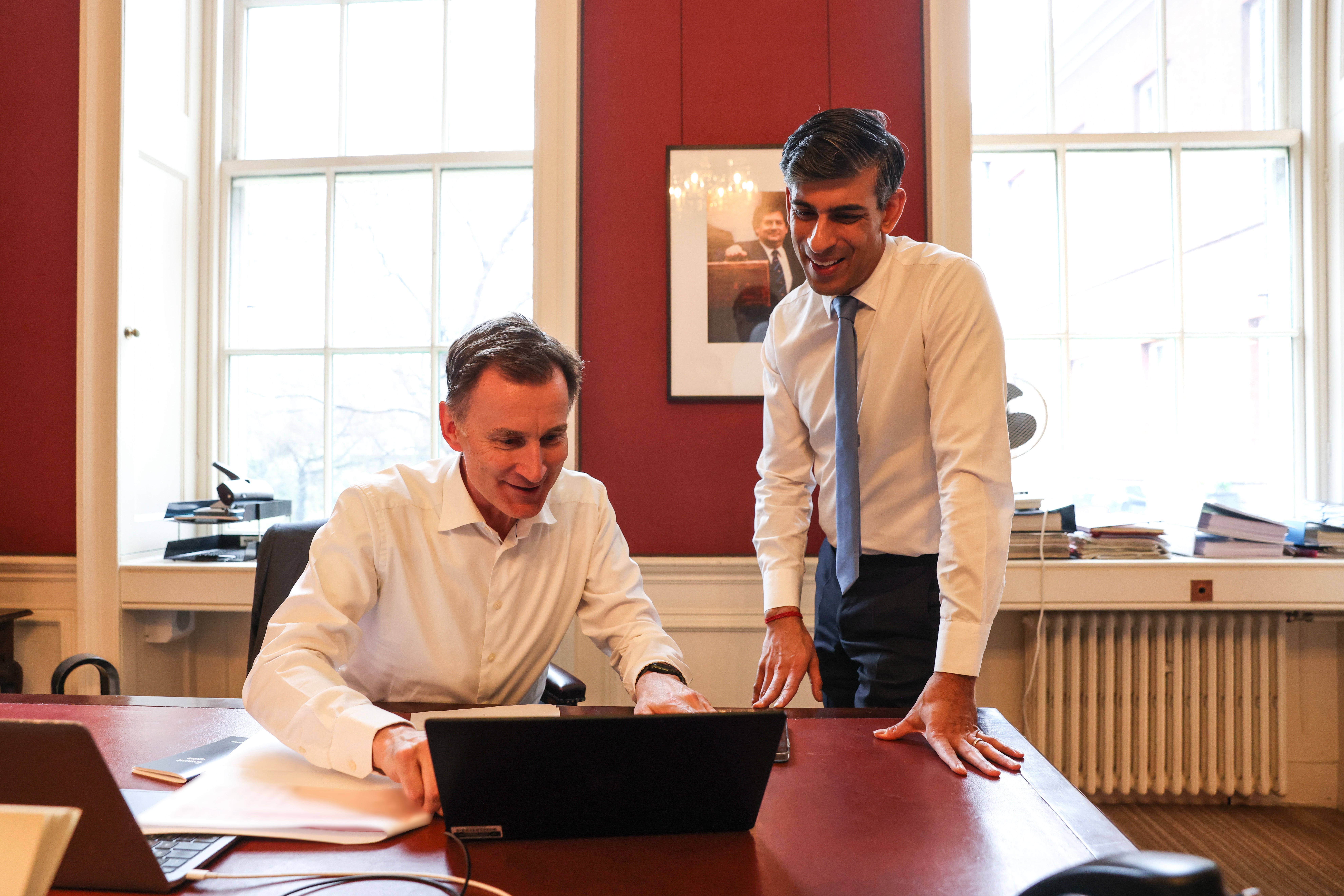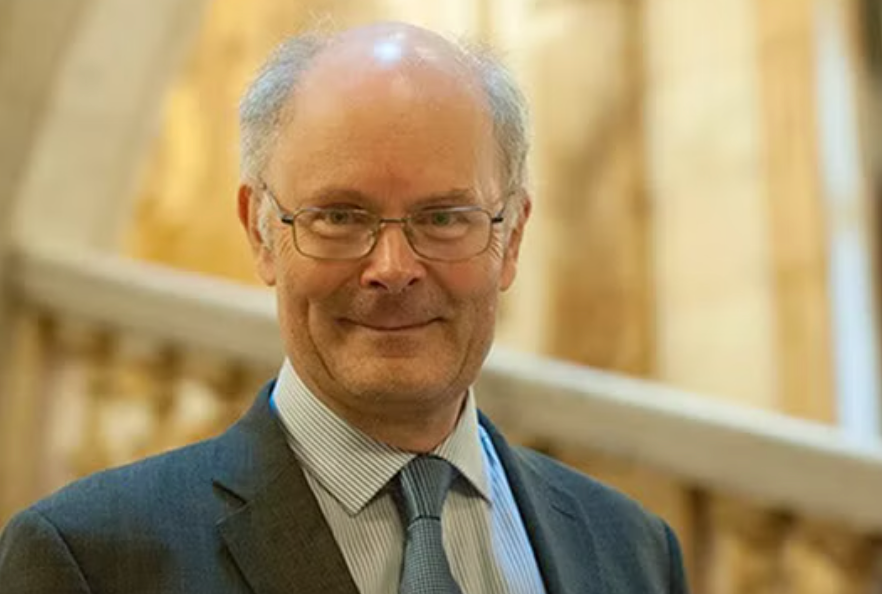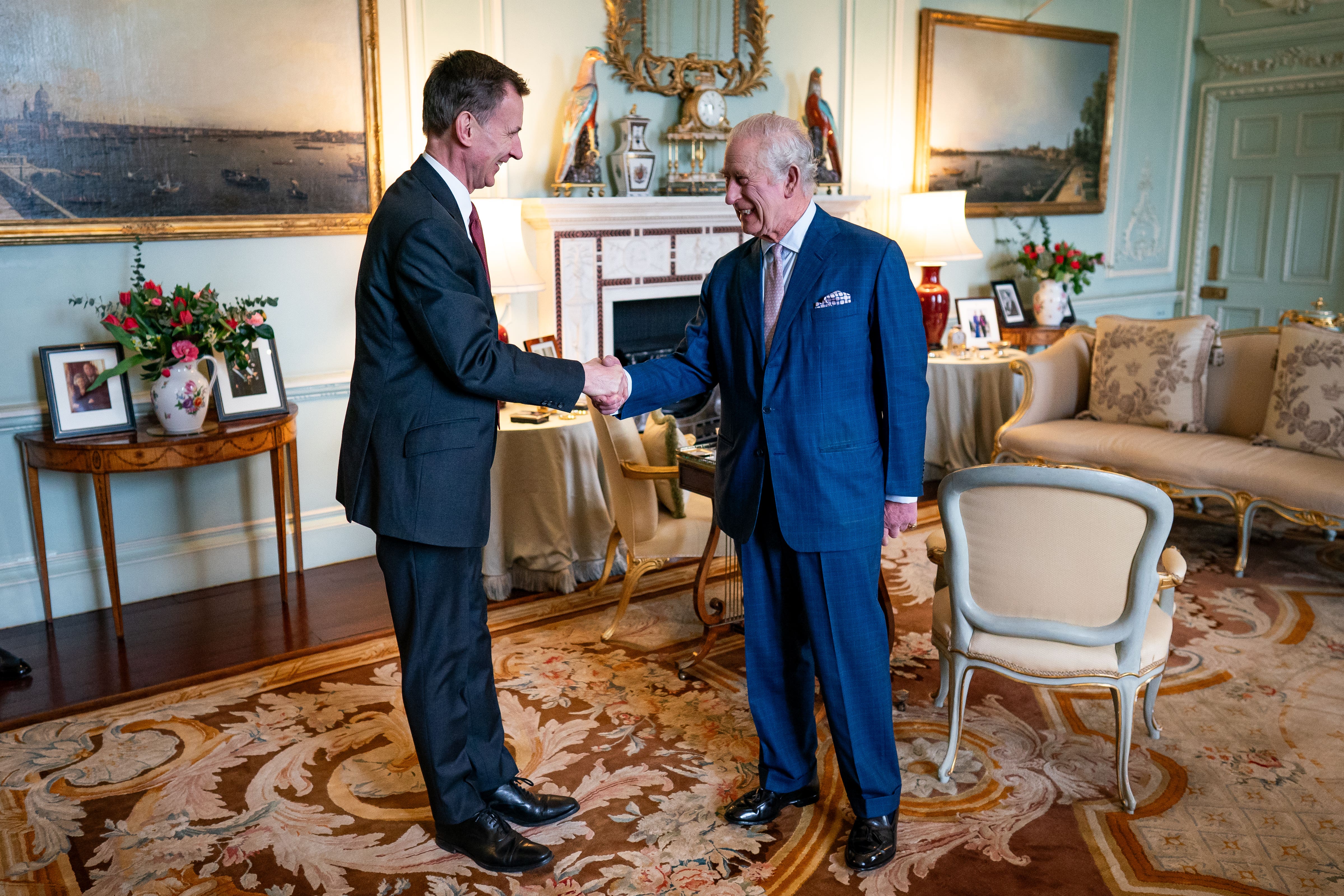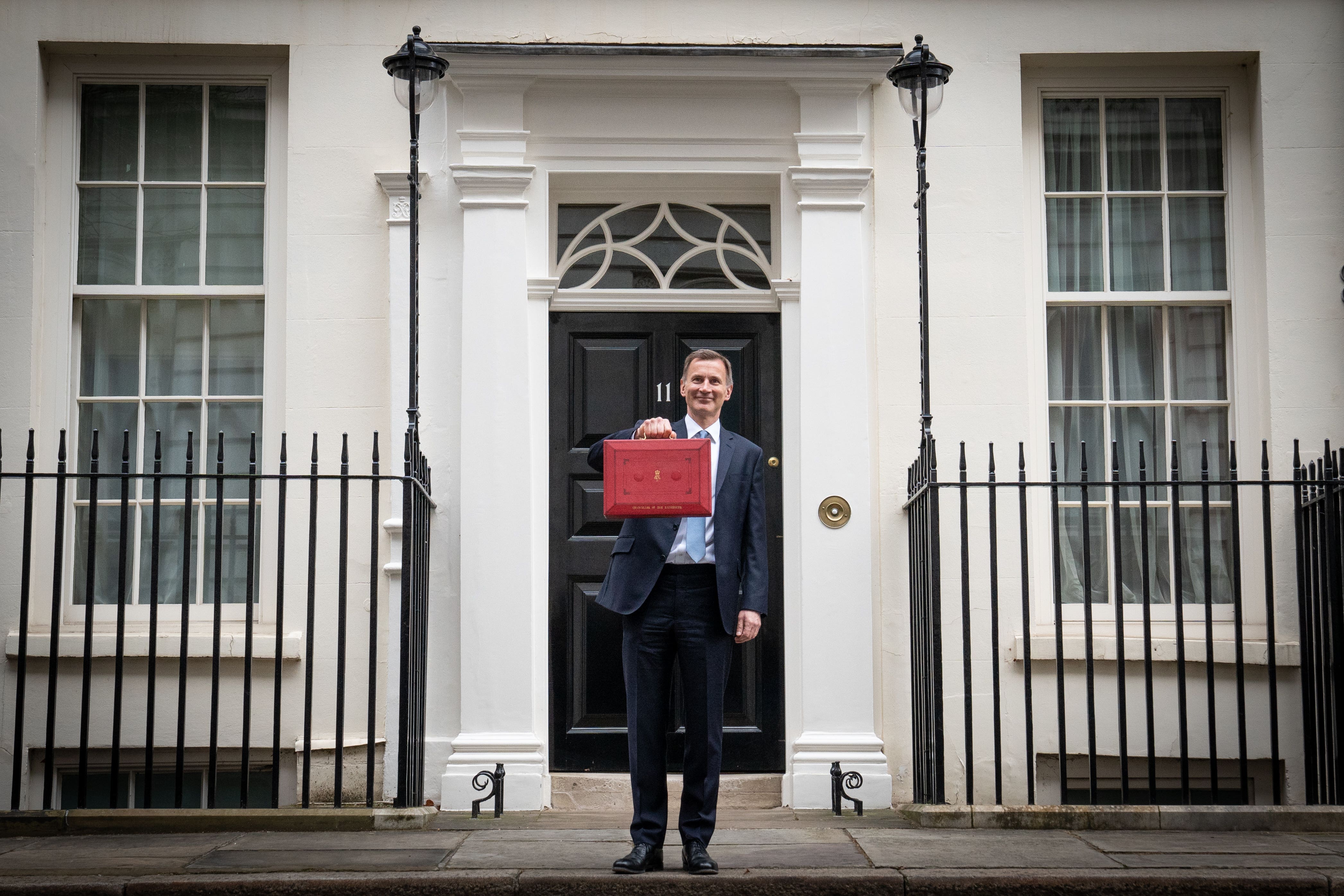Jeremy Hunt’s election Budget gamble: 2p off national insurance – but no cut in income tax
Budget expected to deliver national insurance reduction for 27 million workers but pollsters say giveaway won’t reverse dire poll numbers – as PM is warned he can’t afford bigger cuts
Your support helps us to tell the story
From reproductive rights to climate change to Big Tech, The Independent is on the ground when the story is developing. Whether it's investigating the financials of Elon Musk's pro-Trump PAC or producing our latest documentary, 'The A Word', which shines a light on the American women fighting for reproductive rights, we know how important it is to parse out the facts from the messaging.
At such a critical moment in US history, we need reporters on the ground. Your donation allows us to keep sending journalists to speak to both sides of the story.
The Independent is trusted by Americans across the entire political spectrum. And unlike many other quality news outlets, we choose not to lock Americans out of our reporting and analysis with paywalls. We believe quality journalism should be available to everyone, paid for by those who can afford it.
Your support makes all the difference.Jeremy Hunt is set to pile further pressure on Britain’s creaking public services with a multibillion-pound tax cut aimed at winning over disgruntled voters – but is expected to stop short of targeting income tax after being warned his plans were unaffordable.
The chancellor is expected to offer millions of workers a 2p cut to their national insurance in Wednesday’s Budget, saving the average earner £450 a year. Combined with the cut handed out in November, the average earner will now have been handed an annual tax cut worth £900.
In what could be seen as a big election gamble for Rishi Sunak, an income tax cut is now thought to be less likely after Mr Hunt was forced to rip up his plans last week when the spending watchdog, the Office for Budget Responsibility, warned they were unaffordable.
But economists have still warned the national insurance cuts will disproportionately favour higher earners, while pollsters suggested the latest giveaway will do little to shift the Tories’ standing in the polls.
Experts added that the “damaging” plans would add to the strain on the public purse, leading to inevitable cuts to public services in years to come.

Speaking ahead of the Budget, Mr Hunt promised a “long-term plan for growth in the United Kingdom”.
The chancellor said that “because of the progress we’ve made … we can now help families with permanent cuts in taxation”.
And he warned voters that Labour would take Britain “back to square one” and oversee tax hikes that “risk family finances”.
Hitting back at Mr Hunt’s claims, shadow chancellor Rachel Reeves said that while the Conservatives promised to “fix the nation’s roof … they have smashed the windows, kicked the door in and are now burning the house down”.
She added: “Taxes are rising, prices are still going up in the shops and we have been hit by recession. Nothing the chancellor says or does can undo the economic vandalism of the Conservatives over the past decade.”

It came as Professor Sir John Curtice, Britain’s most respected polling guru, said the tax cuts would likely make no difference to the Tories’ dire poll ratings.
Sir John told The Independent that many voters have “made their minds up after the Liz Truss fiasco”, while many other traditional Tory voters would not feel the benefits of the tax cut as older voters do not pay national insurance.
He added that voters are concerned about the state of Britain’s public services, particularly the NHS, and would rather see more investment than giveaways disproportionately benefitting the wealthy.
Sir John said: “The 2p cut in November did not have any discernible impact on the Conservatives’ position in the polls. In fact, [it] is as bad as it has been at any point in this parliament.”
The veteran pollster said he would be surprised if the tax giveaway had any impact on the Tories’ dire polling figures but said it would depend “on the skill of the politicians to market it”.

Laura Suter, head of personal finance at investment platform AJ Bell, said the benefit of the tax cut would be smaller for those on lower incomes, as less of their earnings are taxed to begin with.
Meanwhile, analysis by think tank the Resolution Foundation found that, despite the national insurance cuts, only those earning between £27,000 and £59,000 would be better off due to the government’s decision to freeze the thresholds for different tax bands.
The freeze, first introduced by Mr Sunak when he was chancellor, has dragged millions of workers into higher tax brackets. Everybody earning below £27,000 and above £59,000 will still be worse off at the end of this parliament, the think tank found.
It added that Mr Hunt’s decisions will only add to the likely tax hikes to be brought in after the general election expected this autumn.
Resolution Foundation principal economist Adam Corlett told The Independent: “There are huge questions about whether Britain can really afford £20bn of tax cuts this year, given the insufficient outlook for public spending and the need to reduce our national debt.

“But the chancellor has at least opted for a better approach than cutting income tax rates – prioritising workers who face higher tax rates than landlords and pensioners.”
The New Economics Foundation said Mr Hunt’s tax cuts would be “damaging”. Senior economist Sam Tims said: “Everywhere you look, from our schools to hospitals to high streets, our country is falling apart at the seams while millions of people struggle to get by.
“Yet at the same time, our chancellor is pushing for tax cuts that the country does not want, and which will benefit those who already have the most.”
Chris Hopkins, political research director at pollsters Savanta, said Mr Hunt’s November tax cut failed to shift the polls, adding that Mr Sunak and the chancellor “may be similarly disappointed this time round”.
He told The Independent: “There is a chance that a giveaway Budget could provide the government with the poll boost it needs but with the public still feeling inflationary price rises and the wider effects of the rising cost of living, many will struggle to feel significantly better off no matter what the chancellor says at the dispatch box.”

According to The Times, which first reported the planned 2p national insurance cut, it will cost about £10bn and impact 27 million workers.
The chancellor had reportedly been considering an income tax cut but is believed to have decided against the measure as it was seen as more costly and raised concerns it could push up inflation.
He is planning to fast-track the legislation necessary, putting forward a bill next week that would allow it to come into effect from April.
There has been speculation some of the cash for the tax cut could come from Mr Hunt stealing a key Labour policy, to scrap or overhaul the non-dom tax loophole raising billions. The move would be a U-turn for Mr Hunt, who has criticised it, but it would wrong-foot Ms Reeves, who has used the pledge to fund many of Labour’s plans for power.
Amid criticism of the expected tax cut, Downing Street defended the government’s record on public spending, insisting it is higher today than in 2010, even accounting for inflation.
The prime minister’s official spokesperson said the government has “provided significant funding for departments” to ensure public services are getting the necessary investment.
“We have increased total departmental spending in real terms by over 3 per cent per year on average,” they said.
But Dr George Gibb, head of the Centre for Economic Justice at the Institute for Public Policy Research, said further cuts to “already struggling public services” would not be in the country’s interests.
The think tank said the richest fifth of households would receive more than half of the benefits, while the poorest fifth would see just three per cent of the £10bn cost in lower tax bills.
Dr Gibb said: “Polling regularly shows that voters from across society would rather see taxes held where they are and more funding go to public services. Not only would this condemn our public services to decline further but the benefits of a tax cut are highly unequal across society.”
The Treasury declined to comment.
Join our commenting forum
Join thought-provoking conversations, follow other Independent readers and see their replies
Comments